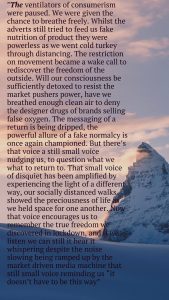In church systems and institutions, it’s not uncommon to encounter a phenomenon of “hopeium.” It’s that heady mixture of optimism, faith, and a dash of magical thinking that makes us believe everything will be okay—if we just believe hard enough. On one hand, this hope can be a balm. After all, hope is foundational to the Christian story: the hope of resurrection, of renewal, of God’s kingdom breaking through. But what happens when hope becomes detached from action, critical reflection, or adaptive change? That’s when hopeium can turn toxic.
Toxic hopeium often shows up in church systems grappling with deep-seated challenges: declining influence, outdated structures, or a widening gap between institutional priorities and the needs of the world. Instead of grappling with the hard realities, institutional leaders might cling to vague promises of revival, grand but unfocused visions, or the comforting refrain of “God will provide.” While it’s true that faith can move mountains, it’s also true that someone has to pick up a shovel. When hope is used to paper over systemic issues or avoid making tough decisions, it can lead to stagnation, disillusionment, and a cycle of institutional inertia.
Consider the denomination that launches a major strategic initiative every few years, each time heralded as the solution to declining membership or cultural irrelevance. Resources are poured into programs and campaigns, but the underlying issues remain unaddressed: the inability to engage with a rapidly changing society, resistance to adaptive change, or a leadership culture that prioritizes preservation over mission. Hope, untethered from thoughtful strategy and missional humility, becomes a narcotic. It numbs us to reality instead of equipping us to transform it.
And yet, hope is also a gift. It’s what inspires institutions to dream of a renewed role in society and take risks for the sake of the gospel. The challenge, then, is to ground institutional hope in adaptive change strategies that acknowledge reality while pointing us toward renewal.
So, how can church systems navigate this tension? The first step is honesty. Institutional leaders need to adopt a posture of missional humility, recognizing that no single program or vision will fix systemic issues overnight. Missional humility invites us to listen—to God, to our communities, and to one another—and to admit where we’ve fallen short. This isn’t about doom and gloom; it’s about clarity. Only when we understand the landscape can we discern the path forward.
Next, we need to pair hope with action rooted in adaptive change. This means moving beyond technical fixes to addressing the deeper cultural and systemic shifts required for renewal. It might mean dismantling hierarchies that stifle creativity, investing in grassroots initiatives, or fostering a culture of experimentation and learning. Adaptive change requires courage—and a willingness to fail—as we navigate uncharted territory.
Finally, we must cultivate a theology of hope that’s robust enough to withstand setbacks. Christian hope isn’t about quick fixes; it’s about the long game. It’s about trusting that God is at work, even when we can’t see the fruit of our labors.
Hopeium, in its toxic form, can trap church systems in a cycle of false expectations and inertia. But hope, when rooted in truth, humility, and adaptive action, can be a powerful force for institutional renewal. The difference lies in whether we use hope to escape reality or to transform it. As I prepare for my next stage with Alchemy At The Edge I want to harness the transformative power of hope.

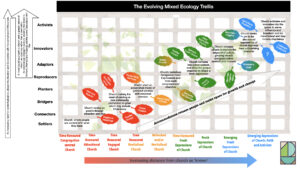
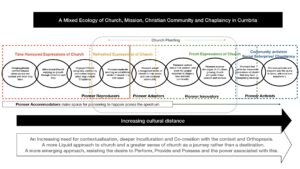
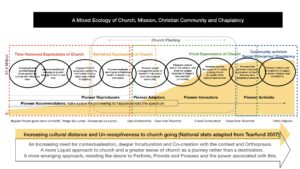


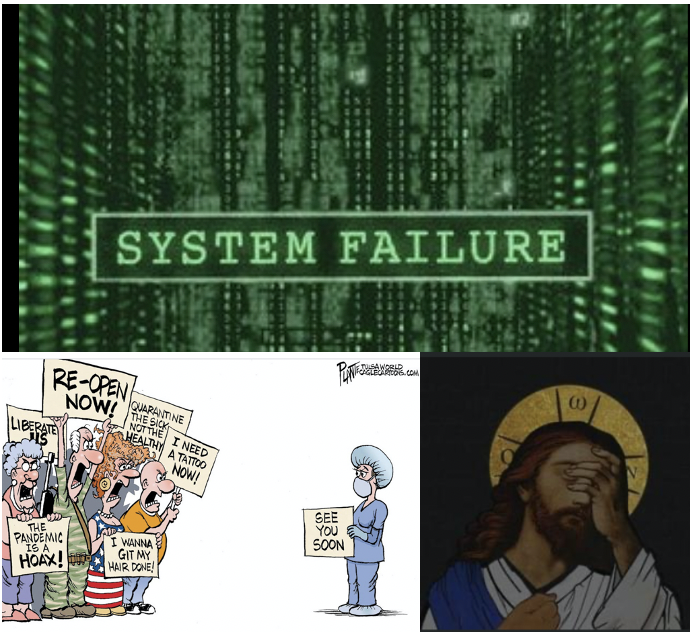 I do think some of the reactions in the USA for me just show how addicted we are, (not just how they are), to a consumerist capitalist system, and I really do think these are signs of system failure. Most of my life we have talked of the shifts from modernity to post modernity to post secularisation and the collapse of our financial system as the consequences of a system where money has become disconnected from the real when we ended the gold standard, and where the system has created economic slavery and an insatiable desire to use the worlds resources beyond what is sustainable and now faces global warming and ecoside.
I do think some of the reactions in the USA for me just show how addicted we are, (not just how they are), to a consumerist capitalist system, and I really do think these are signs of system failure. Most of my life we have talked of the shifts from modernity to post modernity to post secularisation and the collapse of our financial system as the consequences of a system where money has become disconnected from the real when we ended the gold standard, and where the system has created economic slavery and an insatiable desire to use the worlds resources beyond what is sustainable and now faces global warming and ecoside.